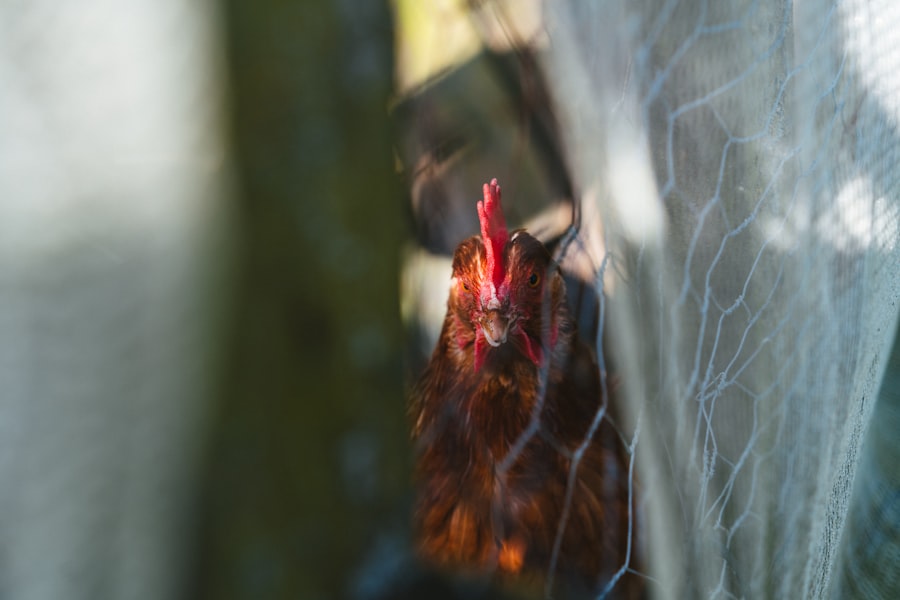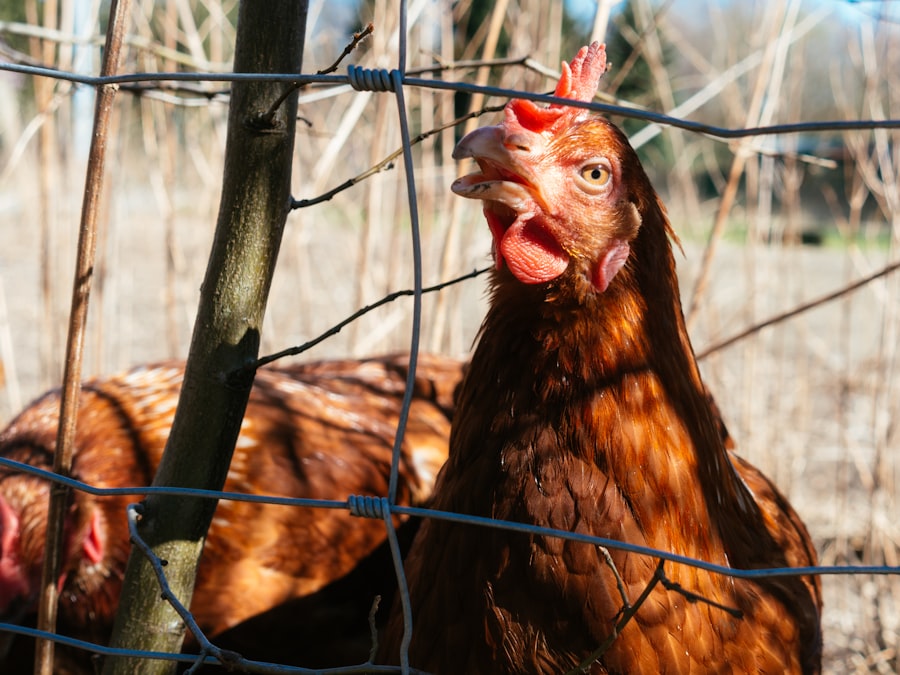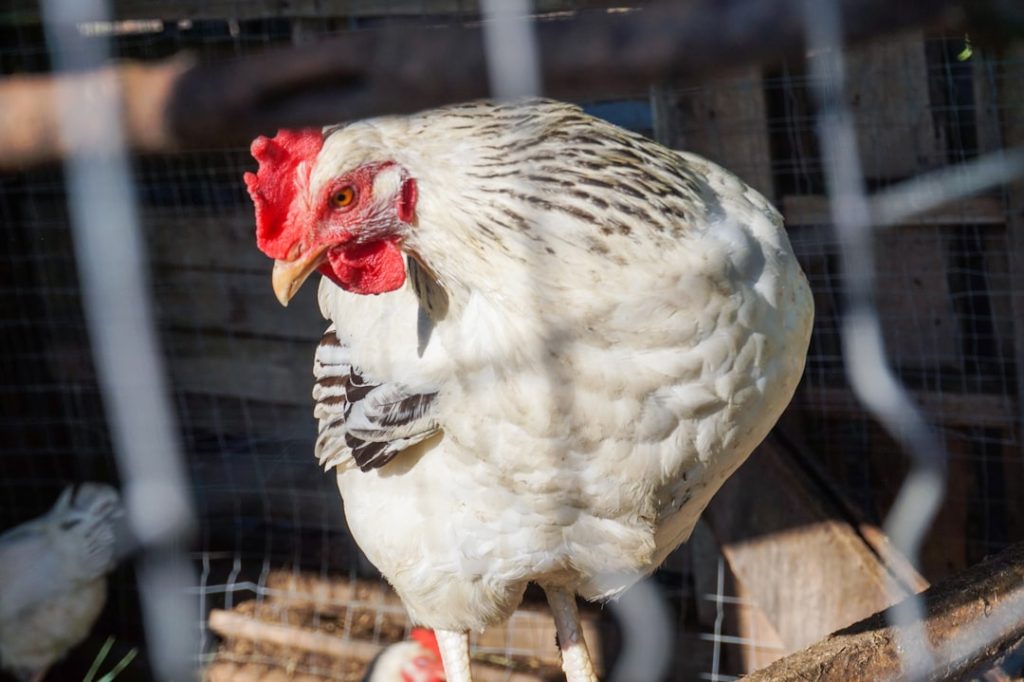Wild chickens, also known as feral chickens, are descendants of domesticated chickens that have reverted to a wild state. They are highly adaptable birds that can be found in a variety of habitats, including forests, grasslands, and urban areas. Wild chickens are known for their social behavior, living in flocks with a dominant rooster and several hens.
They are also opportunistic feeders, consuming a wide range of foods including seeds, insects, and small animals. Wild chickens are known for their ability to adapt to their environment and can be quite resourceful when it comes to finding food and shelter. They are also known for their territorial behavior, often defending their territory from other birds and animals.
Understanding the behavior of wild chickens is essential when it comes to managing and controlling their presence in a specific area. Wild chickens are also known for their loud vocalizations, especially the crowing of the roosters. This can be a source of annoyance for people living in close proximity to wild chicken populations.
Additionally, their droppings can create unsanitary conditions and attract pests. Understanding the behavior of wild chickens can help in developing effective strategies for managing their presence and minimizing the negative impact they may have on the environment and human populations.
Table of Contents
- 1 Creating barriers to keep wild chickens out
- 2 Implementing natural deterrents for wild chickens
- 3 Removing food sources that attract wild chickens
- 4 Using humane methods to discourage wild chickens
- 5 Seeking assistance from local wildlife authorities
- 6 Understanding the legalities of dealing with wild chickens
- 7 FAQs
- 7.1 What are some effective methods for keeping wild chickens out of my yard?
- 7.2 How can I deter wild chickens from entering my yard without harming them?
- 7.3 Are there any plants that can help keep wild chickens out of my yard?
- 7.4 What should I do if I encounter wild chickens in my yard?
- 7.5 Is it legal to trap or harm wild chickens in my yard?
Key Takeaways
- Wild chickens exhibit natural behaviors such as foraging, roosting, and nesting in rural and urban areas
- Barriers such as fences, netting, and motion-activated sprinklers can effectively keep wild chickens out of specific areas
- Natural deterrents like citrus peels, cayenne pepper, and predator decoys can discourage wild chickens from frequenting certain areas
- Removing food sources such as spilled grains, pet food, and garbage can help reduce the attraction of wild chickens to an area
- Humane methods like noise deterrents, water sprays, and visual deterrents can be used to discourage wild chickens without causing harm
- Local wildlife authorities can provide guidance and assistance in dealing with wild chicken populations
- It is important to understand and comply with local laws and regulations when dealing with wild chickens to avoid legal issues
Creating barriers to keep wild chickens out
Alternative Barrier Methods
Another option for creating barriers is to use motion-activated sprinklers or noise devices that startle the birds when they approach a specific area. This can help to deter wild chickens from entering an area without causing them harm.
Maintenance is Key
It is important to regularly inspect and maintain these barriers to ensure they remain effective in keeping wild chickens out.
A Long-Term Solution
Creating barriers to keep wild chickens out can be an effective long-term solution for managing their presence in a specific area. By preventing them from accessing food sources and shelter, it can help to discourage them from staying in the area and causing damage.
Implementing natural deterrents for wild chickens

In addition to physical barriers, there are natural deterrents that can be used to discourage wild chickens from entering a specific area. One option is to use predator decoys, such as fake owls or hawks, which can create the illusion of danger and deter wild chickens from approaching. These decoys should be moved regularly to prevent the birds from becoming accustomed to them.
Another natural deterrent is the use of strong-smelling plants or herbs that wild chickens find unpleasant. This can include planting garlic, onions, or marigolds around gardens or other areas where wild chickens may be causing damage. The strong odors emitted by these plants can help to deter the birds from entering the area.
Implementing natural deterrents for wild chickens can be an effective and environmentally friendly way to manage their presence in a specific area. By using natural methods to discourage the birds, it can help to minimize the negative impact they may have on the environment and human populations.
Removing food sources that attract wild chickens
Wild chickens are opportunistic feeders and will consume a wide range of foods, including seeds, insects, and small animals. One effective method for discouraging wild chickens from entering a specific area is to remove or secure potential food sources that may be attracting them. This can include securing garbage cans, compost piles, and bird feeders to prevent access by wild chickens.
It is also important to regularly clean up spilled food or seeds in outdoor areas, as this can attract wild chickens and other pests. By removing or securing potential food sources, it can help to discourage wild chickens from staying in the area and causing damage. In addition to removing food sources, it is important to minimize access to water sources that may be attracting wild chickens.
This can include repairing leaky faucets or removing standing water in outdoor areas. By removing potential food and water sources, it can help to discourage wild chickens from entering a specific area and causing damage.
Using humane methods to discourage wild chickens
When dealing with wild chickens, it is important to use humane methods to discourage them from entering a specific area. This can include using noise devices or motion-activated sprinklers that startle the birds without causing them harm. It is important to avoid using lethal methods or poisons, as these can have negative impacts on other wildlife and the environment.
Another humane method for discouraging wild chickens is to use visual deterrents, such as reflective tape or shiny objects, which can create the illusion of danger and deter the birds from approaching. These visual deterrents should be moved regularly to prevent the birds from becoming accustomed to them. Using humane methods to discourage wild chickens is essential for minimizing the negative impact they may have on the environment and human populations.
By using non-lethal methods, it can help to manage their presence in a specific area without causing harm to the birds or other wildlife.

If wild chicken populations become a persistent problem in a specific area, it may be necessary to seek assistance from local wildlife authorities. These authorities may have expertise in managing wildlife populations and can provide guidance on effective strategies for managing wild chicken populations.
Access to Resources and Expert Guidance
Local wildlife authorities may also have resources available for trapping and relocating wild chickens to more suitable habitats. It is important to work closely with these authorities to ensure that any management strategies are carried out in a humane and environmentally responsible manner.
Effective Management Strategies
Seeking assistance from local wildlife authorities can be an effective way to address persistent issues with wild chicken populations in a specific area. By working with experts in wildlife management, it can help to develop effective strategies for managing their presence and minimizing the negative impact they may have on the environment and human populations.
Understanding the legalities of dealing with wild chickens
When dealing with wild chicken populations, it is important to understand the legalities of managing their presence in a specific area. In some cases, there may be local ordinances or regulations that govern how wild chicken populations can be managed. It is important to familiarize oneself with these regulations and ensure that any management strategies comply with local laws.
In some areas, it may be illegal to trap or relocate wild chickens without proper permits or authorization from local wildlife authorities. It is important to work closely with these authorities to ensure that any management strategies are carried out in compliance with local laws and regulations. Understanding the legalities of dealing with wild chickens is essential for ensuring that any management strategies are carried out in a responsible and lawful manner.
By complying with local laws and regulations, it can help to minimize potential conflicts and ensure that any management strategies are carried out in a humane and environmentally responsible manner.
If you’re looking for ways to keep wild chickens out of your yard, you may also be interested in learning about duck mating season. Check out this article to understand more about the behavior of ducks and how it may impact your yard.
FAQs
What are some effective methods for keeping wild chickens out of my yard?
Some effective methods for keeping wild chickens out of your yard include installing a fence, using motion-activated sprinklers, and removing food sources.
How can I deter wild chickens from entering my yard without harming them?
You can deter wild chickens from entering your yard without harming them by using natural repellents such as citrus peels, vinegar, or cayenne pepper. Additionally, you can use visual deterrents such as scarecrows or reflective objects.
Are there any plants that can help keep wild chickens out of my yard?
Yes, there are certain plants that can help keep wild chickens out of your yard. Plants with strong scents such as lavender, mint, or rosemary can act as natural deterrents for wild chickens.
What should I do if I encounter wild chickens in my yard?
If you encounter wild chickens in your yard, it is best to remain calm and avoid making sudden movements. You can gently shoo them away by making noise or using a gentle water spray.
Is it legal to trap or harm wild chickens in my yard?
The legality of trapping or harming wild chickens in your yard depends on local laws and regulations. It is important to check with your local wildlife authorities before taking any action against wild chickens.
Meet Walter, the feathered-friend fanatic of Florida! Nestled in the sunshine state, Walter struts through life with his feathered companions, clucking his way to happiness. With a coop that’s fancier than a five-star hotel, he’s the Don Juan of the chicken world. When he’s not teaching his hens to do the cha-cha, you’ll find him in a heated debate with his prized rooster, Sir Clucks-a-Lot. Walter’s poultry passion is no yolk; he’s the sunny-side-up guy you never knew you needed in your flock of friends!







